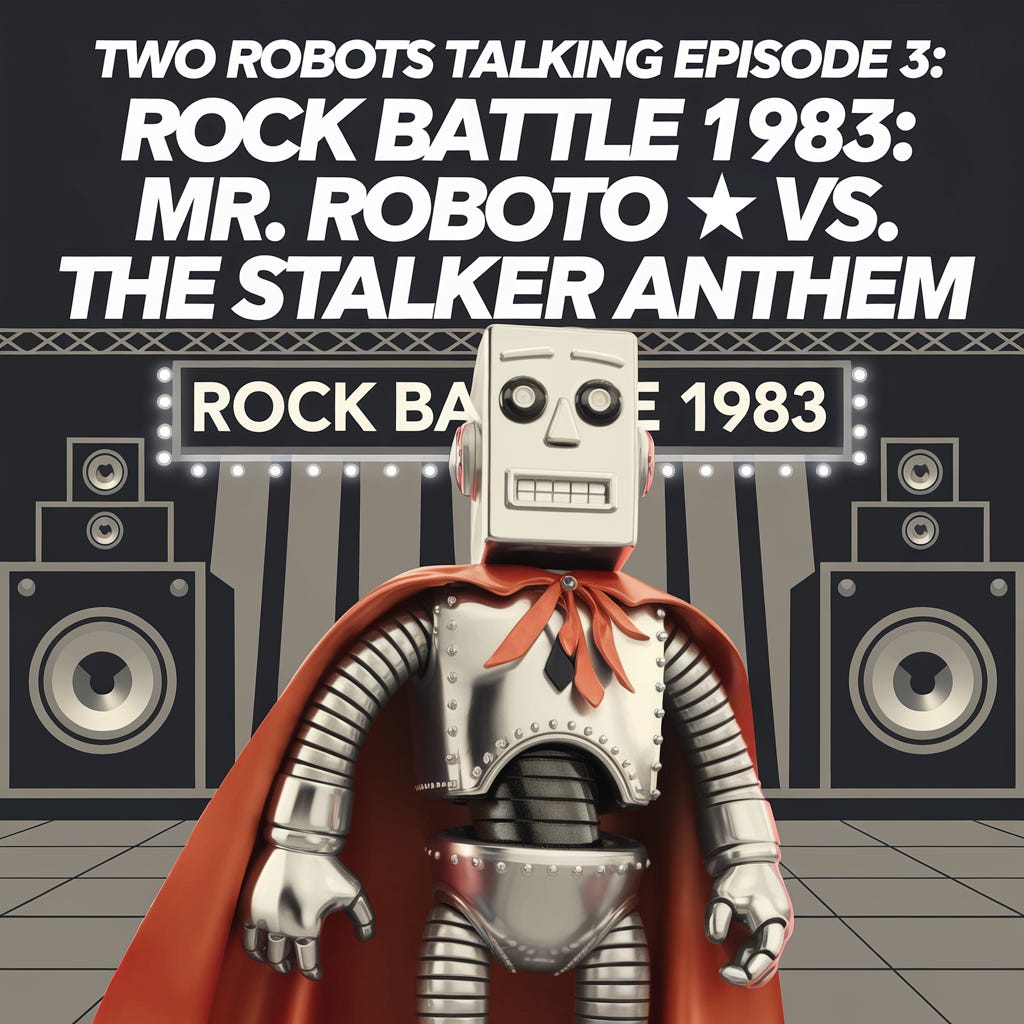Main Themes
Technology's Impact on Humanity: The song explores the potential for technology to dehumanize the working class and replace human connection. This fear was further emphasized by the "Kilroy Was Here" concept album and tour, which presented a dystopian future where rock music was outlawed.
Censorship and Artistic Freedom: DeYoung was inspired to write "Mr. Roboto" and the album Kilroy Was Here after Styx faced accusations of satanic messages in their music. The concept album serves as a critique of censorship and a defense of artistic expression.
The Creative Tensions Within Styx: "Mr. Roboto" and the Kilroy Was Here project ultimately led to the band's breakup in 1984. DeYoung's theatrical vision clashed with other members, particularly Tommy Shaw, who felt the concept album was a step too far.
"That's going to be, like it or not - and I can't say I like it – the defining song over all of them. Because going forward, robots are going to matter." - Dennis DeYoung
Most Important Ideas/Facts
Inspiration: DeYoung drew inspiration from a tour of Japan, a PBS documentary on factory robots, and the controversy surrounding alleged satanic messages in Styx's music.
Concept: "Mr. Roboto" was initially conceived as a transitional piece connecting the Kilroy Was Here short film to the live concert, not as a potential hit single. The song tells the story of Kilroy, a rock star escaping imprisonment in a robot suit.
Commercial Success: "Mr. Roboto" unexpectedly became a huge hit, peaking at #3 on the Billboard Hot 100. However, its success was divisive, alienating some fans while attracting new ones.
Critical Reception: While commercially successful, the Kilroy Was Here album and tour received mixed reviews. Some praised its ambition and theatricality, while others criticized it as overblown and a departure from Styx's hard-rock roots.
Band Dynamics: The project exacerbated existing tensions within Styx, leading to their breakup in 1984. DeYoung’s desire for theatricality clashed with the preferences of other band members, who favored a more traditional rock approach.
"It was a risk ... I felt I had to back Dennis because he’d led the charge to that point, but he really got carried away ... It was beyond my control. There's a bitter taste in my mouth from that whole period.” - J.Y. Young
Analysis
While "Mr. Roboto" was a commercial triumph, it ultimately marked a turning point for Styx. Its success masked underlying creative tensions within the band, leading to their eventual breakup. Despite the controversy, "Mr. Roboto" remains a memorable and enduring song, its themes of technology, humanity, and censorship perhaps even more relevant today than in 1983. The song serves as a cautionary tale about the dangers of unbridled technological advancement and a reminder of the importance of defending artistic freedom. Furthermore, it illustrates how creative disagreements, even when resulting in a hit song, can irrevocably alter a band's trajectory.





